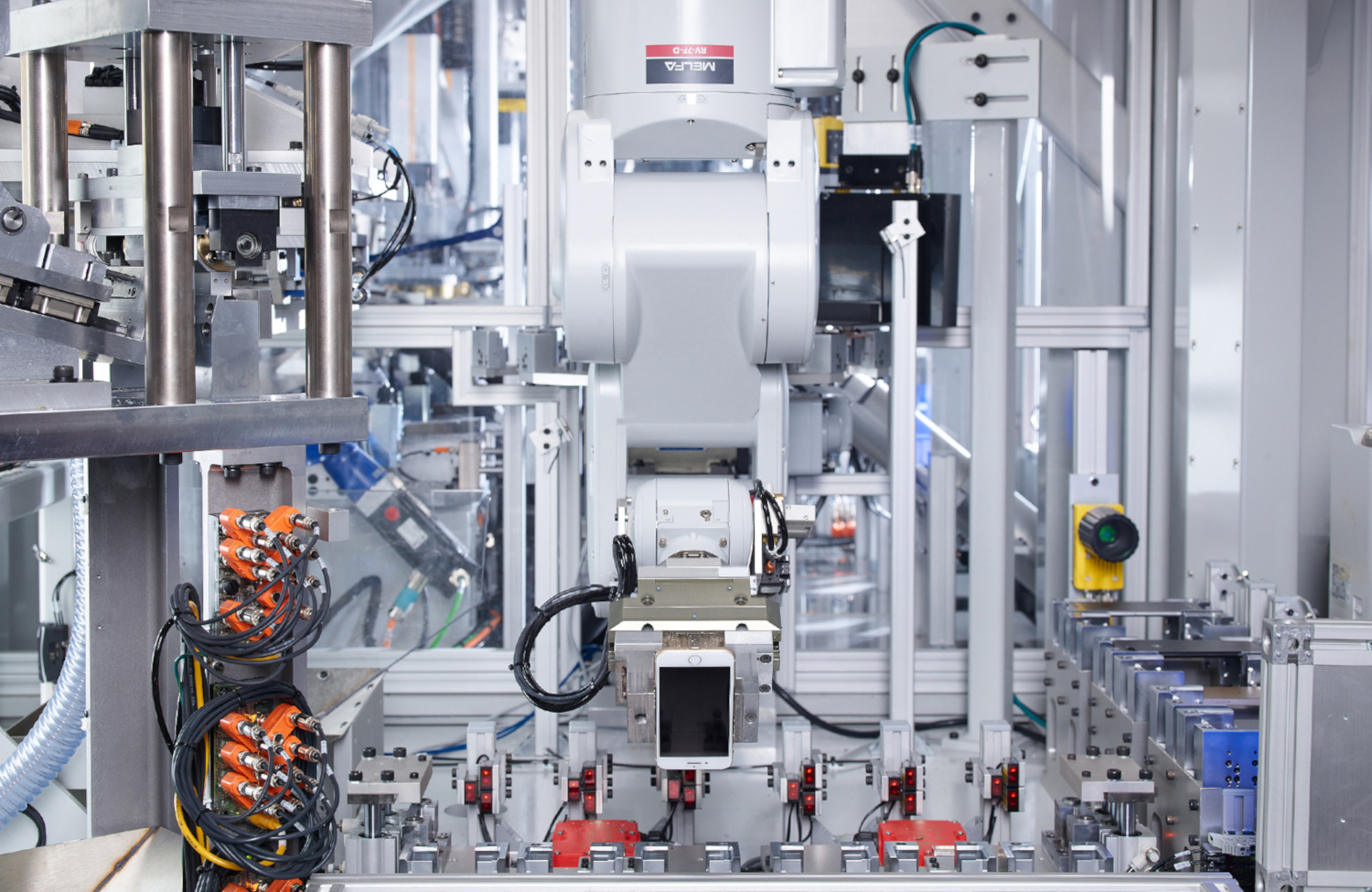Apple Expands Recycling Efforts With New Texas Factory
Manufacturers have a problem. They need to sell millions of devices every year to meet shareholder expectations, but if the processes used to make those products destroy the environment, their market will eventually disappear. (Unless the cockroaches figure out how to use smartphones, of course.) That's where recycling programs come in, and Apple announced today that it's expanding its efforts to be environmentally conscious.
Apple claimed it "uses 100 percent recycled tin in a key component of the main logic boards of 11 different products" and that it's also started using "an aluminum alloy made from 100 percent recycled aluminum" in the MacBook Air and Mac mini. Using that alloy is said to have reduced the carbon footprints of these devices by half, and eventually Apple plans to use aluminum from traded-in devices to create the MacBook Air's enclosure.
The company also created a new Material Recovery Lab, a 9,000 square-foot facility in Austin, Texas that will collaborate with Apple's engineering teams as well as academic researchers. Apple said the main purpose of the Material Recovery Lab is to "look for innovative solutions involving robotics and machine learning to improve on traditional methods like targeted disassembly, sorting and shredding." Recycling is going high-tech.
The Material Recovery Lab will complement Apple's efforts to improve the recycling of iPhones. The company said it quadrupled the number of factories to which iPhones traded in via the Apple website, the Apple Trade In program, Best Buy stores in the U.S. and KPN stores in the Netherlands are recycled via a robot called Daisy. Apple said that so far it's received nearly 1 million devices through its programs.
Daisy is capable of disassembling 1.2 million iPhones per year, so Apple's not at risk of reaching capacity any time soon. That's good, because the company said it processed more than 7.8 million traded-in devices and "helped divert more than 48,000 metric tons of electronic waste from landfills" in 2018 alone. Hopefully, those numbers will continue to rise as the company invests more in its recycling efforts.
Apple said it plans to celebrate Earth Day on April 22 by holding "environmentally themed Today at Apple sessions at all Apple Stores," as well as "featuring original stories and collections of apps and games on the App Store to help people honor the Earth and consider their role in the natural ecosystem." Apple Watch owners will also be invited to an Earth Day Challenge tasking them with exercising for 30 minutes in the planet's honor.
This is a promising start, especially in conjunction with the recycling efforts of other companies. Dell is a prime example: the company reportedly recycled 2 billion pounds of e-waste between 2013 and 2018; it had originally meant to hit that milestone in 2020 as part of its Dell 2020 Legacy of Good Plan. That's still just a start, though, and companies have a long way to go on their journeys toward being environmentally sustainable.
Get Tom's Hardware's best news and in-depth reviews, straight to your inbox.
More information about Apple's recycling efforts is available in the company's annual Environmental Responsibility Report and the environment section of its website.

Nathaniel Mott is a freelance news and features writer for Tom's Hardware US, covering breaking news, security, and the silliest aspects of the tech industry.
